
Mikhail Gorbachev, the former leader of the USSR who helped end the Cold War but could not prevent the collapse of the Soviet Union, has died, according to Russian media reports.
“Mikhail Sergeevich Gorbachev died this evening after a serious and long illness,” the Central Clinical Hospital in Moscow said, quoted by Russian news agencies. He was aged 91.
Kremlin spokesman Dmitry Peskov said in a statement that Russian President Vladimir Putin offered deep condolences over Gorbachev’s death and would send an official telegram to Gorbachev’s family in the morning.
The pair had clashed ideologically, and Mr Gorbachev was said to have accused the current Russian leader, embroiled in a seemingly disastrous war in Ukraine, that he had destroyed his legacy of political reform.
Tributes began pouring in late on Tuesday.
Antonio Guterres, secretary general of the United Nations, described Gorbachev as a “towering leader” and former US Secretary of State Henry Kissinger telling the BBC he “performed great services” but was “not able to implement all of his visions”.
“I was unbelievably lucky to call him a friend. All of us can learn from his fantastic life,” said Arnold Schwarzenegger, while Labour leader Keir Starmer tweeted: “One of the great figures of the 20th Century, Mikhail Gorbachev’s pursuit of reform forged a path for diplomacy over conflict.”
Mr Gorbachev, helped forged arms reduction deals with the United States and partnerships with Western powers to remove the Iron Curtain that had divided Europe since World War Two and bring about the reunification of Germany.
He held unprecedented summits with US president Ronald Reagan, who urged him to “tear down this [Berlin] wall” and was famous for attempts at reforming the moribund USSR, notably with the policies of perestoika and glasnost, and was famously described by British leader Margaret Thatcher as a “man one could do business with”, at a time when relations between Moscow and the West were all but frozen.
He was idolised in the West, which was used to ageing, almost glacial Soviet leaders, at a time of real fear about the possibilities of a nuclear war between the two blocs led by Russia and the United States. He even went by the nickname “Gorby”.
The award of the 1990 Nobel Peace Prize marked the pinnacle of world acclaim for the role that Gorbachev, then Soviet president, had played in ending the Cold War without bloodshed. But in Russia it was a different story.
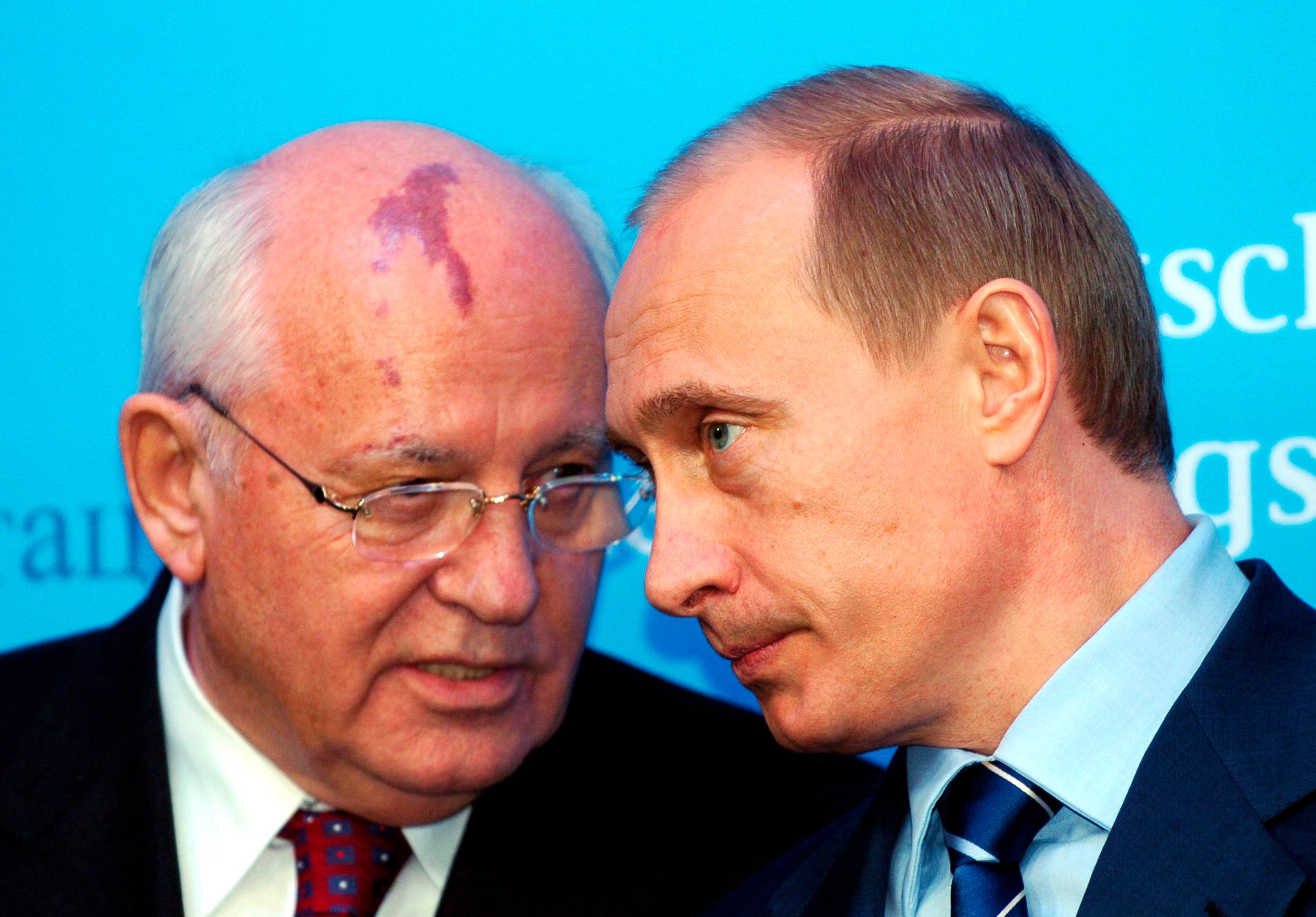
He became general secretary of the Soviet Communist Party in 1985, aged a relatively young 54, and he set out to revitalise the system by introducing limited political and economic freedoms.
Though in power less than seven years, Gorbachev unleashed a breathtaking series of changes, which transformed post-war Europe.
But they quickly overtook him and resulted in the collapse of the authoritarian Soviet state, the freeing of Eastern European nations from Russian domination and the end of decades of East-West nuclear confrontation.
His policy of ‘glasnost’ – free speech – allowed previously unthinkable criticism of the party and the state, but also emboldened nationalists who began to press for independence in the Baltic republics of Latvia, Lithuania, Estonia and elsewhere.
As the changes helped push reform, they also spawned pro-democracy protests across the Soviet bloc nations of communist Eastern Europe in the late 1980s, desperate to free themselves from the control of Moscow.
Notably, unlike previous Soviet leaders, he refrained from using force to crush uprisings in eastern Europe, as had happened previously in Hungary in 1956 and Czechoslovakia in 1968, when local populations took to the streets demanding change.
And the protests also fuelled aspirations for autonomy in the 15 republics of the Soviet Union, which disintegrated over the next two years in chaotic fashion. Gorbachev struggled in vain to prevent that collapse.
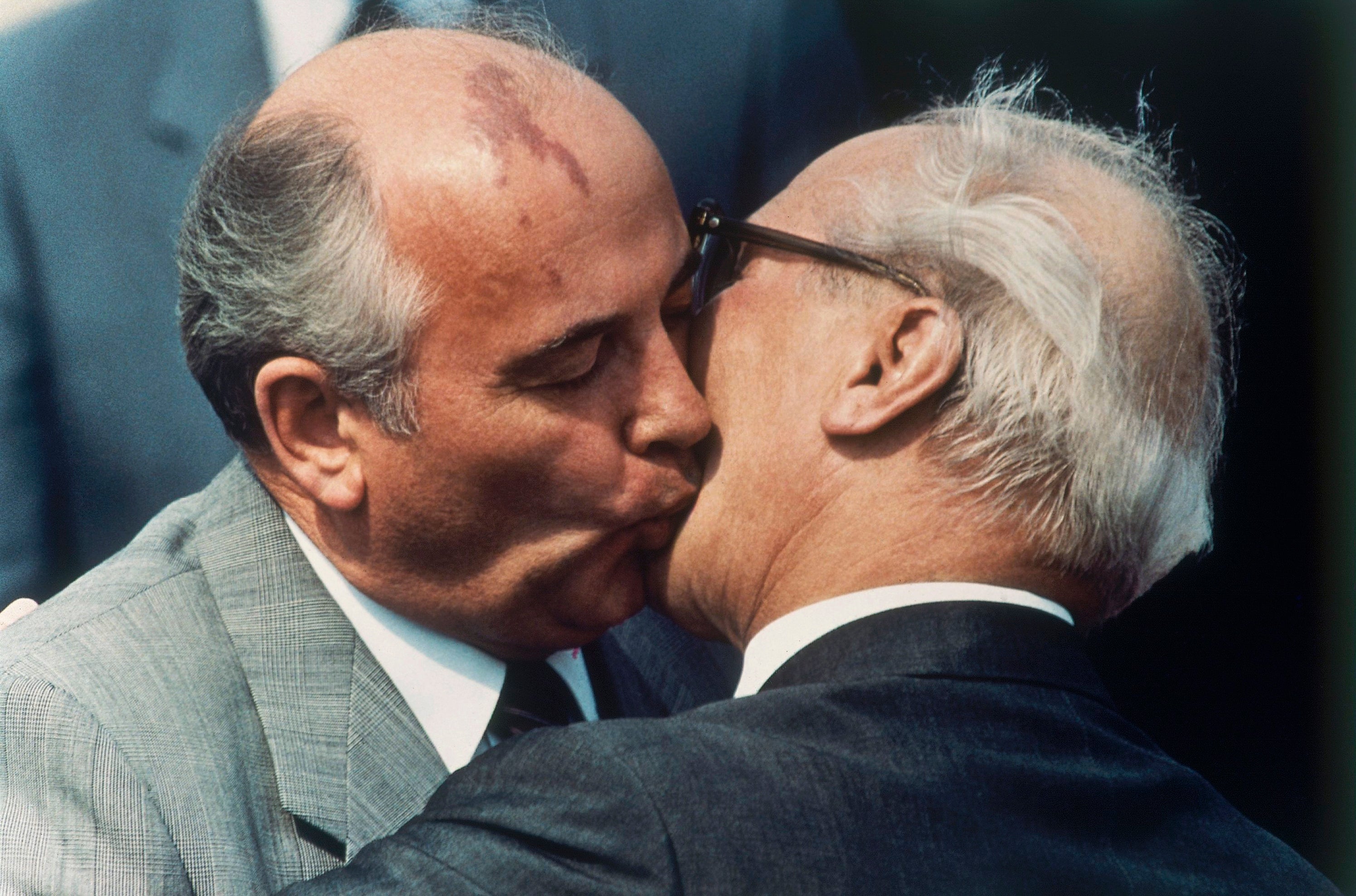
Many Russians never forgave Gorbachev for the turbulence that his reforms unleashed, considering the subsequent plunge in their living standards too high a price to pay for democracy.
At home he was a drained and defeated man when forced to step down in 1991, following an attempted coup by conservatives earlier that year.
His decline was humiliating. His power hopelessly sapped by an attempted coup against him in August 1991, he spent his last months in office watching republic after republic declare independence until he resigned on Christmas Day. The Soviet Union wrote itself into oblivion a day later.
A quarter-century after the collapse, Gorbachev said he had not considered using widespread force to try to keep the USSR together because he feared chaos in the nuclear country.
“The country was loaded to the brim with weapons. And it would have immediately pushed the country into a civil war,” he said.
Many of the changes, including the Soviet breakup, bore no resemblance to the transformation that Gorbachev had envisioned when he became Soviet leader in March 1985.
By the end of his rule he was powerless to halt the whirlwind he had sown. Yet Gorbachev may have had a greater impact on the second half of the 20th century than any other single political figure.
“I see myself as a man who started the reforms that were necessary for the country and for Europe and the world,” he said in 1992. “I am often asked, would I have started it all again if I had to repeat it? Yes, indeed. And with more persistence and determination.”
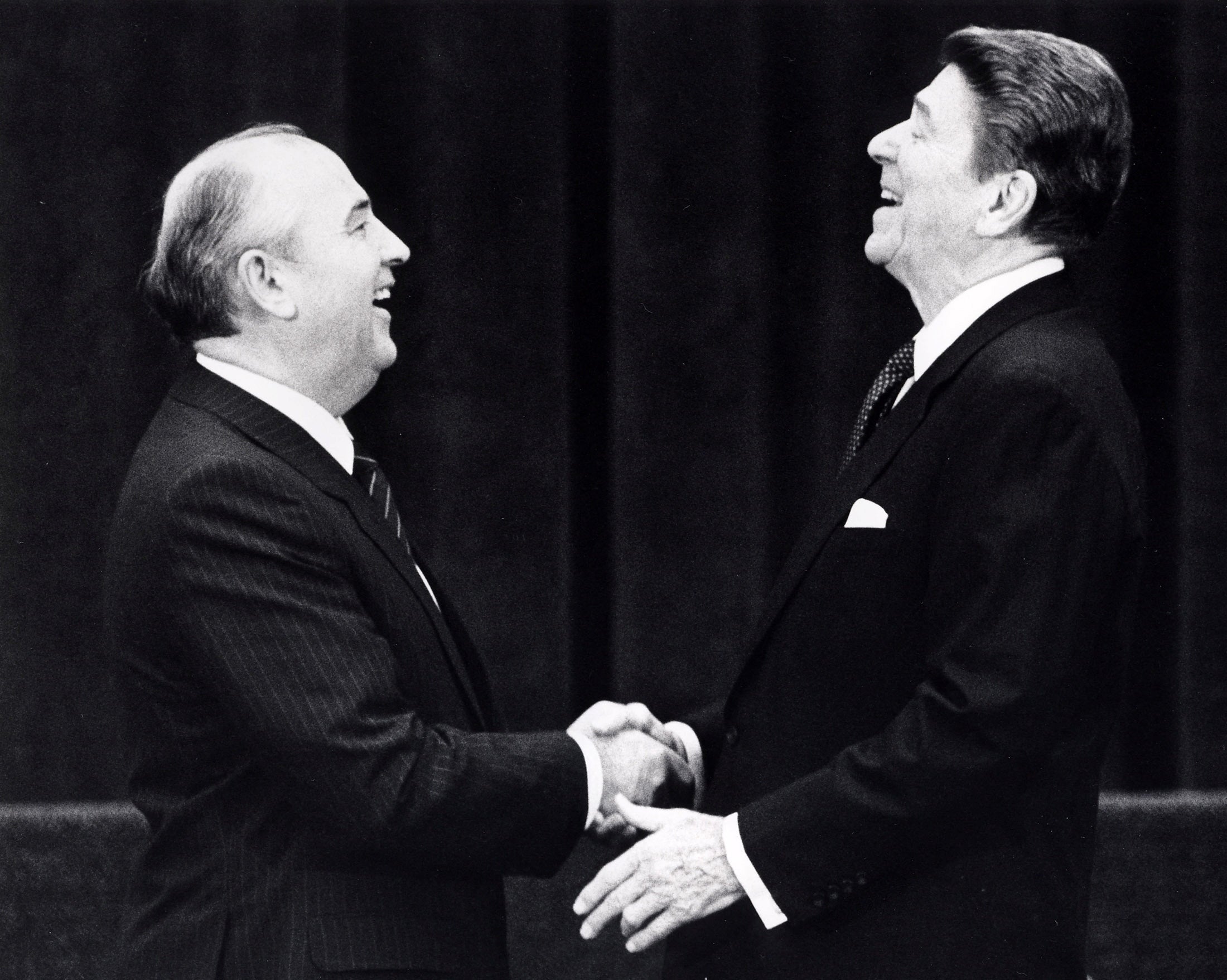
Russians blamed him for the 1991 implosion of the Soviet Union, former allies deserted him and made him a scapegoat for the country’s troubles. His run for president in 1996 was a national joke, and he polled less than one per cent of the vote.In 1997, he resorted to making a TV ad for Pizza Hut to earn money for his charitable foundation.
“In the ad, he should take a pizza, divide it into 15 slices like he divided up our country, and then show how to put it back together again,” quipped Anatoly Lukyanov, a one-time Gorbachev supporter.
Gorbachev never set out to dismantle the Soviet system. What he wanted to do was improve it. Soon after taking power, Gorbachev began a campaign to end his country’s economic and political stagnation, using “glasnost” or openness, to help achieve his goal of “perestroika” or restructuring.
In his memoirs, he said he had long been frustrated that in a country with immense natural resources, tens of millions were living in poverty.
“Our society was stifled in the grip of a bureaucratic command system,” Gorbachev wrote. “Doomed to serve ideology and bear the heavy burden of the arms race, it was strained to the utmost.”
But the forces he unleashed quickly escaped his control. Long-suppressed ethnic tensions flared, sparking wars and unrest in trouble spots such as the southern Caucasus region. Strikes and labor unrest followed price increases and shortages of consumer goods.
Mikhail Sergeyevich Gorbachev was born March 2, 1931, in the village of Privolnoye in southern Russia. Both of his grandfathers were peasants, collective farm chairmen and members of the Communist Party, as was his father.
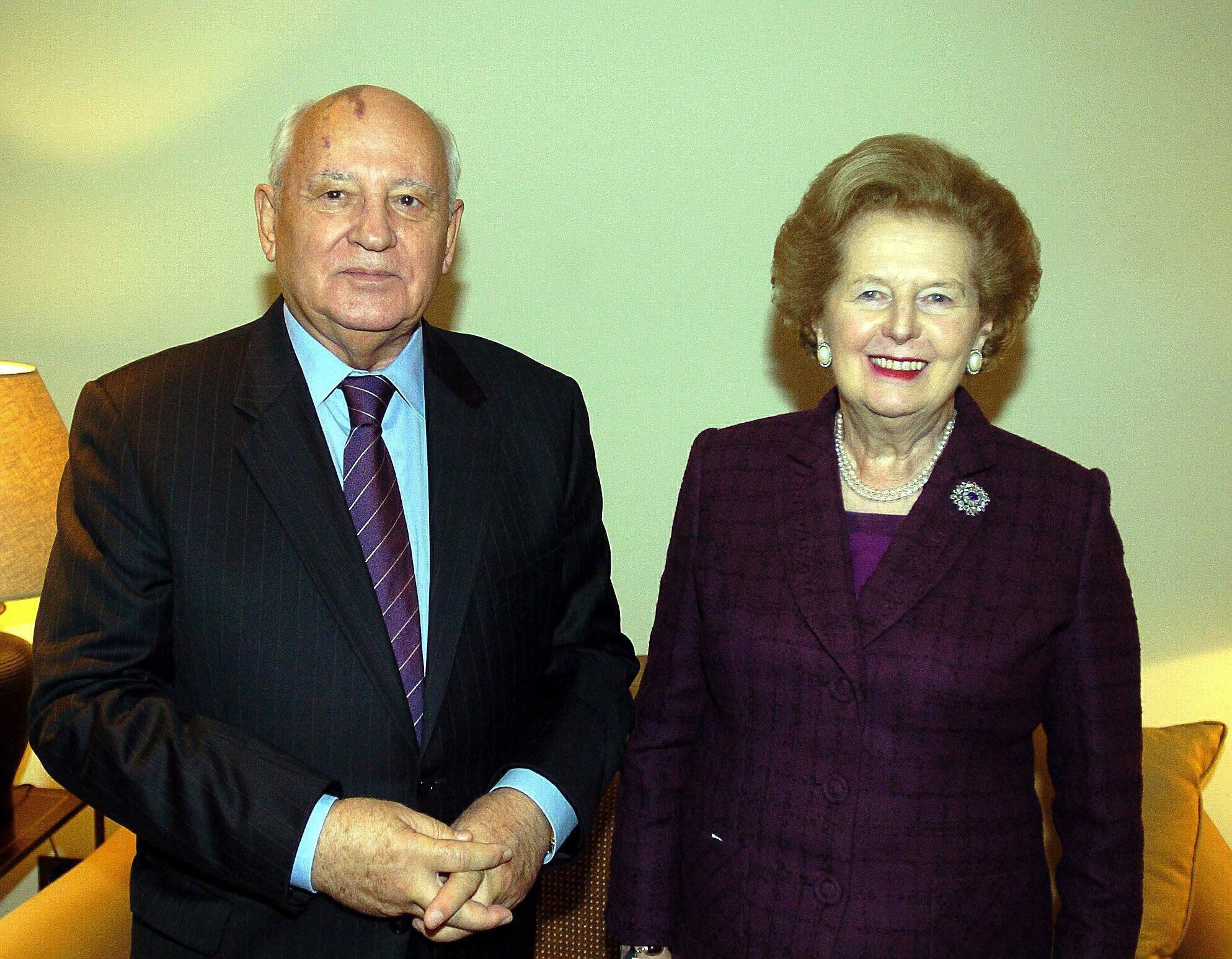
Despite stellar party credentials, Gorbachev’s family did not emerge unscathed from the terror unleashed by Soviet dictator Josef Stalin: Both grandfathers were arrested and imprisoned for allegedly anti-Soviet activities.
But, rare in that period, both were eventually freed. In 1941, when Gorbachev was 10, his father went off to war, along with most of the other men from Privolnoye, to fight the Nazis. When the war was over, the young Gorbachev was one of the few village boys whose father returned.
By age 15, Gorbachev was helping his father drive a combine harvester after school and during the region’s blistering, dusty summers. His performance earned him the order of the Red Banner of Labour, an unusual distinction for a 17-year-old. That prize and the party background of his parents helped him land admission in 1950 to the country’s top university, Moscow State.
There, he met his wife, Raisa Maximovna Titorenko, and joined the Communist Party.
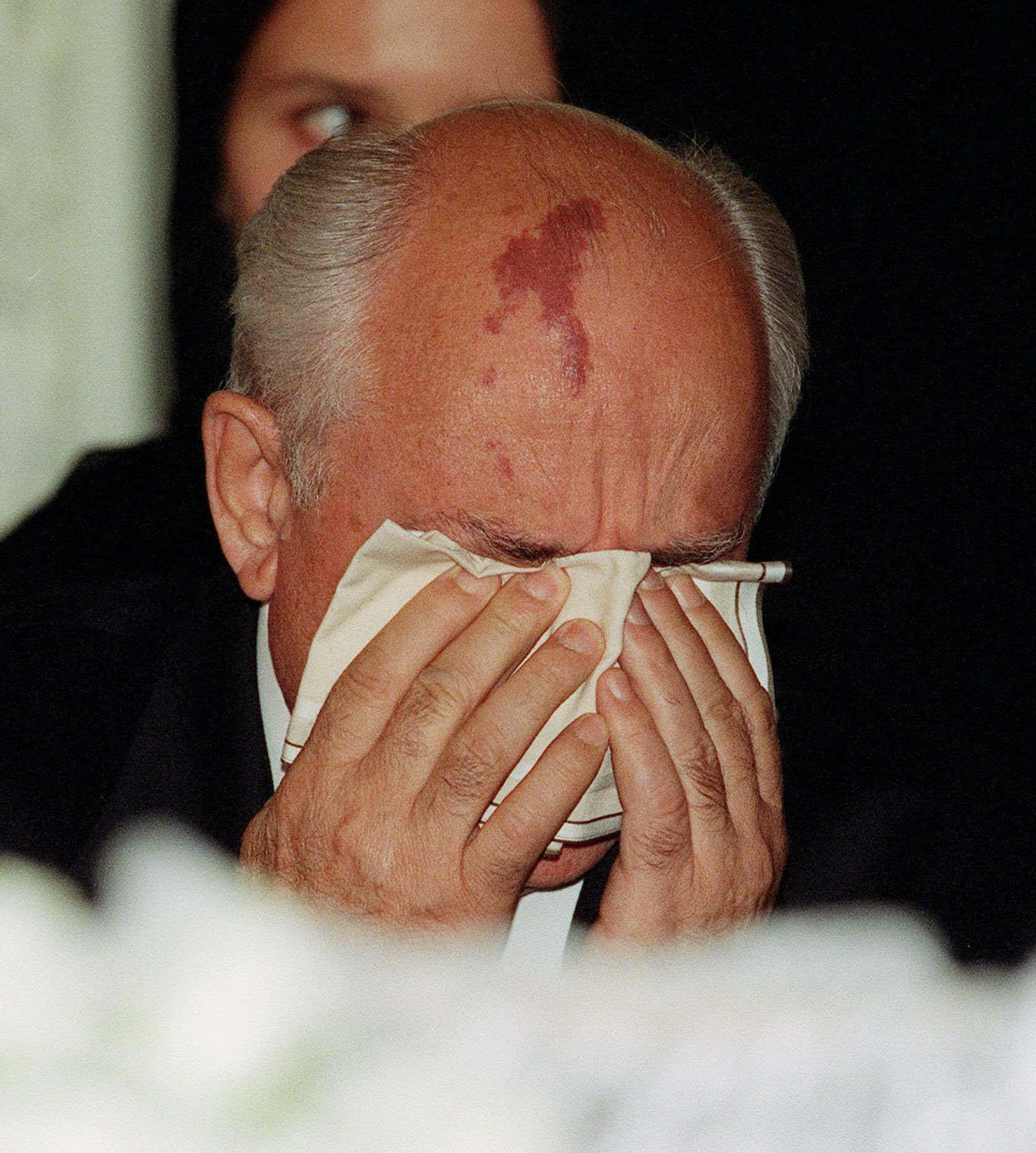
The award and his family’s credentials also helped him overcome the disgrace of his grandfathers’ arrests, which were overlooked in light of his exemplary Communist conduct. In his memoirs, Gorbachev described himself as something of a maverick as he advanced through the party ranks, sometimes bursting out with criticism of the Soviet system and its leaders.
His early career coincided with the “thaw” begun by Nikita Khrushchev. As a young Communist propaganda official, he was tasked with explaining the 20th Party Congress that revealed Soviet dictator Josef Stalin’s repression of millions to local party activists.
He said he was met first by “deathly silence,” then disbelief.
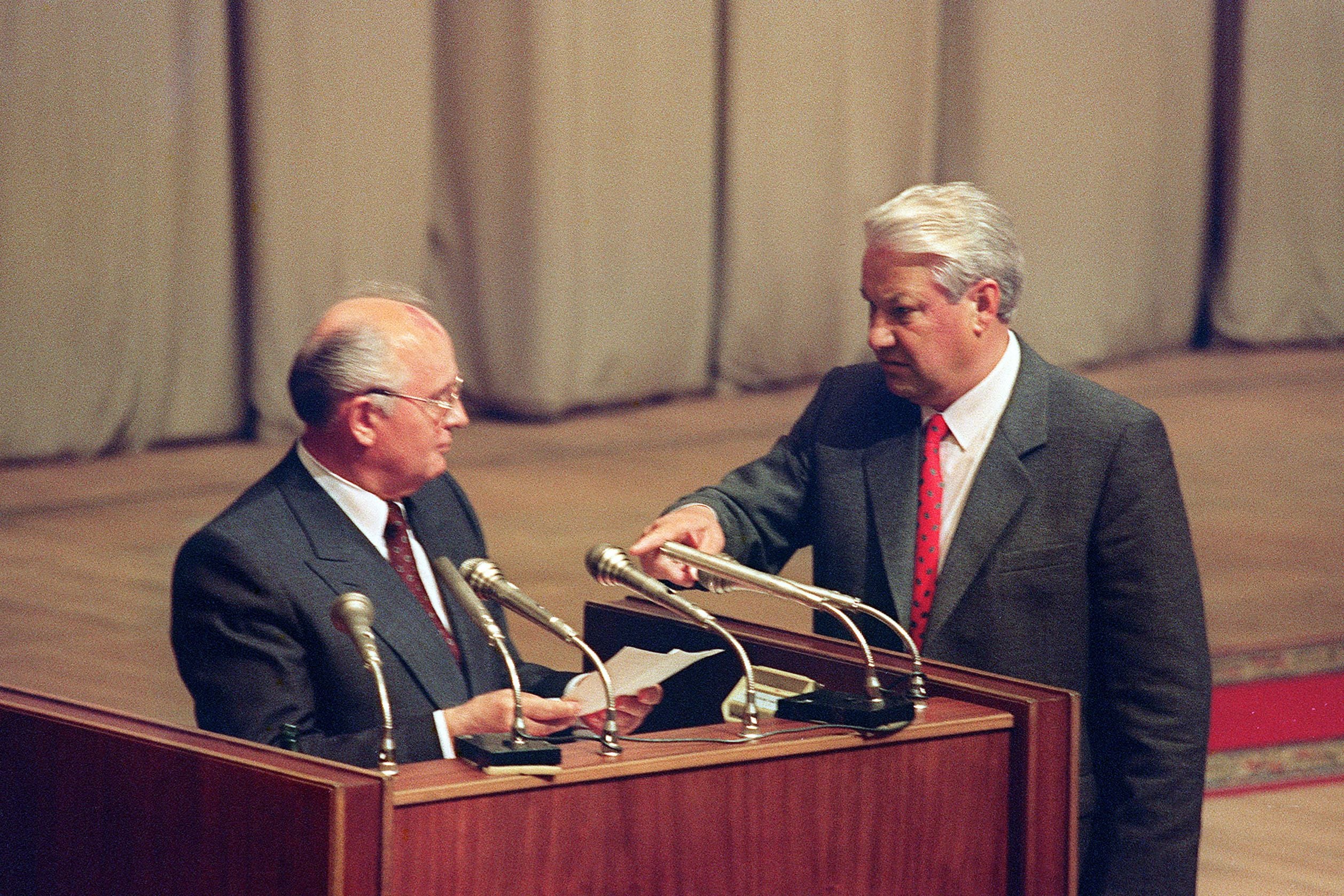
He was a true if unorthodox believer in socialism. He was elected to the powerful party Central Committee in 1971, took over Soviet agricultural policy in 1978, and became a full Politburo member in 1980.His tenure as leader was filled with rocky periods, including a poorly conceived anti-alcohol campaign, the Soviet military withdrawal from Afghanistan, and the Chernobyl nuclear disaster.
But starting in November 1985, Gorbachev began a series of attention-grabbing summit meetings with world leaders, especially US Presidents Ronald Reagan and George Bush, which led to unprecedented, deep reductions in the American and Soviet nuclear arsenals. After years of watching a parade of stodgy leaders in the Kremlin, Western leaders practically swooned over the charming, vigorous Gorbachev and his stylish, brainy wife.
But perceptions were very different at home. It was the first time since the death of Soviet founder Vladimir Lenin that the wife of a Soviet leader had played such a public role, and many Russians found Raisa Gorbachev showy and arrogant.Although the rest of the world benefited from the changes Gorbachev wrought, the rickety Soviet economy collapsed in the process, bringing with it tremendous economic hardship for the country’s 290 million people.
In the final days of the Soviet Union, the economic decline accelerated into a steep skid. Hyper-inflation robbed most older people of their life’s savings. Factories shut down. Bread lines formed. And popular hatred for Gorbachev and his wife Raisa grew.
But the couple won sympathy in summer 1999 when it was revealed that Raisa Gorbachev was dying of leukemia. During her final days, Gorbachev spoke daily with television reporters, and the lofty-sounding, wooden politician of old was suddenly seen as an emotional family man surrendering to deep grief.
Gorbachev worked on the Gorbachev Foundation, which he created to address global priorities in the post-Cold War period, and with the Green Cross foundation, which was formed in 1993 to help cultivate “a more harmonious relationship between humans and the environment”.
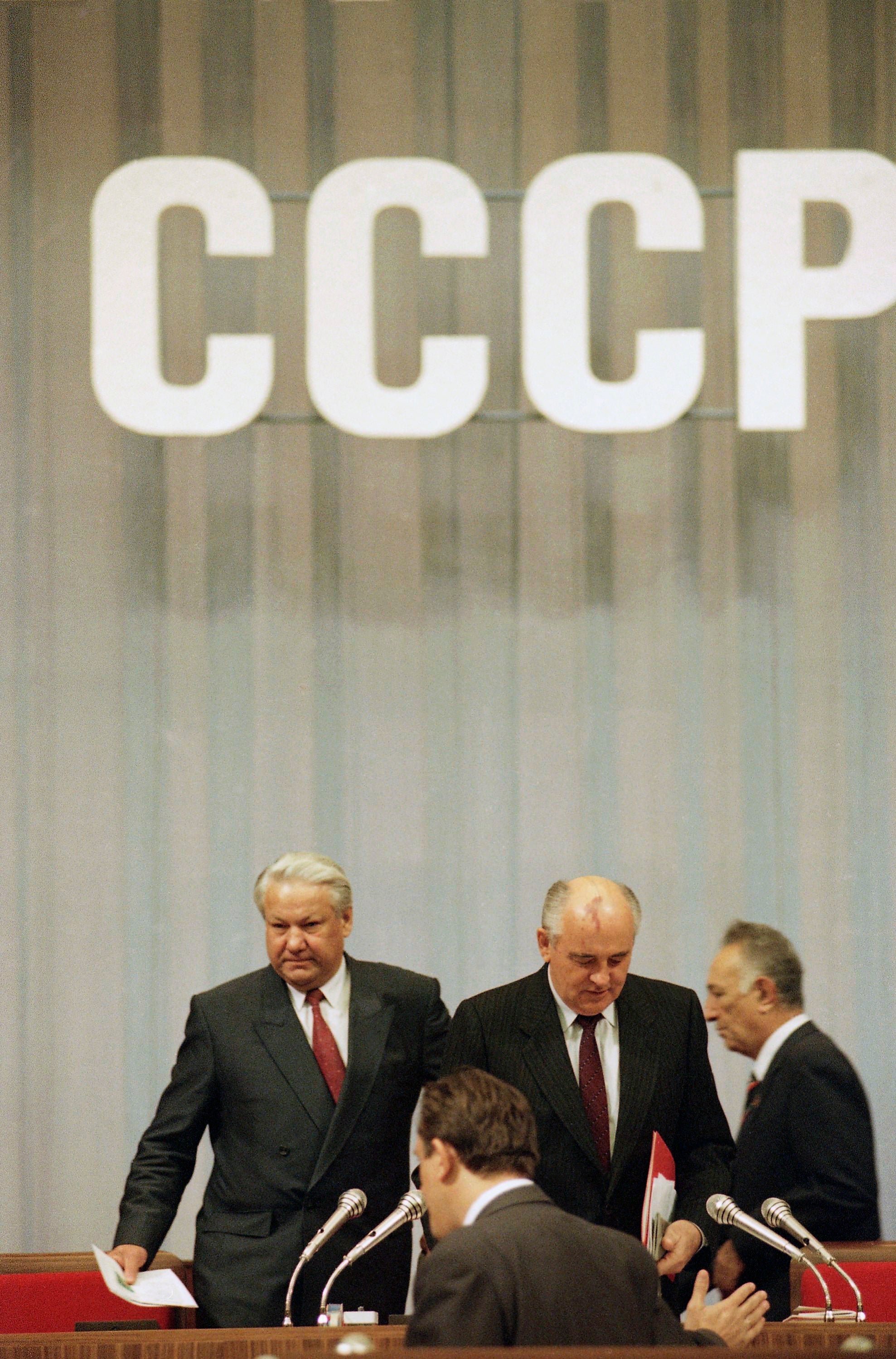
Gorbachev took the helm of the small United Social Democratic Party in 2000 in hopes it could fill the vacuum left by the Communist Party, which he said had failed to reform into a modern leftist party after the breakup of the Soviet Union.
He resigned from the chairmanship in 2004. He continued to comment on Russian politics as a senior statesman — even if many of his countrymen were no longer interested in what he had to say.
“The crisis in our country will continue for some time, possibly leading to even greater upheaval,” Gorbachev wrote in a memoir in 1996.
“But Russia has irrevocably chosen the path of freedom, and no one can make it turn back to totalitarianism.”
Gorbachev had a daughter, Irina, and two granddaughters. The official news agency Tass reported that Gorbachev will be buried at Moscow’s Novodevichy cemetery next to his wife.







